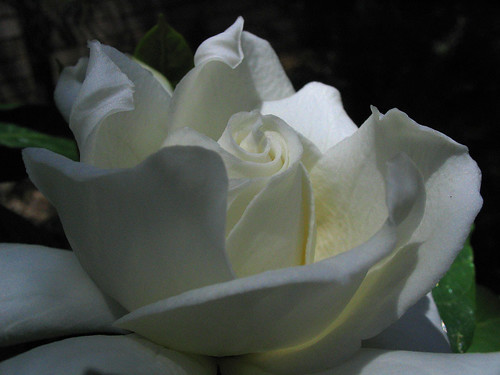He who covers the earth with clouds asked her for water. O marvel!
He who surrounds the clouds with water asked her for water.
He who clothes the clouds with water came to the woman and asked her for water.
He who is borne by the cherubim spoke with a harlot.
He who suspended the earth above the waters asked her for water.
He, the source of water's springs and pools, looked for water.
For He wished to give the water of life to drink to her who was aflame with improper desires.
For He wished to draw to Himself the woman ensnared by the fierce enemy.
For He alone is compassionate and loves humankind.
* * *
In the Orthodox Church the fifth Sunday after Easter is called the Sunday of the Samaritan Woman. This Sunday is based on the Gospel account of Jesus' encounter with the Samaritan woman in John 4: 1-42. Tradition names the woman as Photini and she is the first person to whom Jesus openly reveals Himself as the Messiah:
“I AM he, the one who is speaking to you” (John 4:26).It is also the longest personal conversation that Jesus Christ has in the entire New Testament.
At first, it appears puzzling why the Church would commemorate this episode on the fifth Sunday of Easter since it bears no connection with the Resurrection and does not even contain a miracle that could be linked (even indirectly) to the Resurrection.
The subtlety is the reference to water. Water plays a very significant role throughout the New Testament and is a major symbol within Orthodoxy. Jesus was baptized by water, He transformed water into wine, walked upon the waters, and most significantly, taught that the only way to enter into the kingdom of Heaven was to be born of water and Spirit.
The Wednesday, preceding this festival, is called the "Wednesday of mid-Pentecost" and it is precisely between Easter and Pentecost dividing this into two clear periods of three weeks. Mid-Pentecost, the Church reads the portion of the Gospel that begins with, 'Now about the midst of the feast Jesus went up into the temple ...' corresponding to the Jewish feast of Tabernacles. If we continue this gospel, we come to the words:
"... if any man thirsts, let him come unto me, and drink. He that believe on me, as the scripture has said, out of his belly shall flow rivers of living water. (But this spake he of the Spirit ...)"
This is where we meet the Pentecostal theme and its link to water and, in this way, we are lead to Jacobs Well and we hear Jesus Christ announce to the woman the doctrine of water and of the spirit.
The chants on Saturday evening introduce us to this:
Behold we come to the half of these days which begin with the saving Resurrection and end with the divine feast of Pentecost ... Thou didst come to the wells at the sixth hour, O Thou, most wonderful Fountain.




















